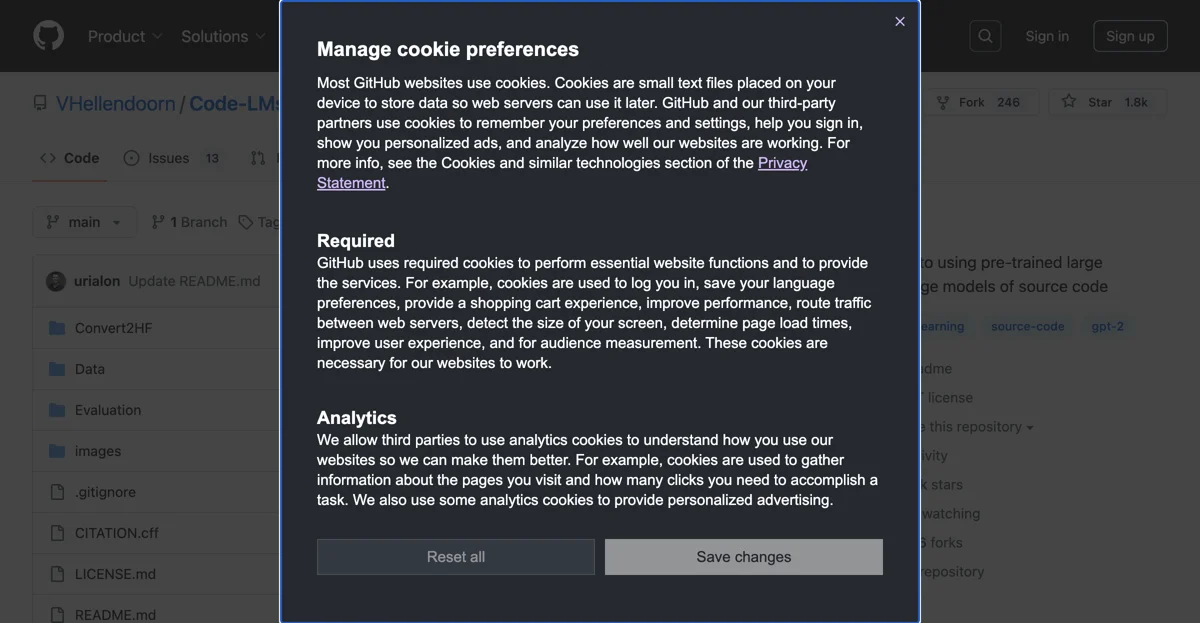Code-LMs: A Guide to Using Pre-trained Large Language Models of Source Code
Introduction
In the ever-evolving landscape of artificial intelligence, Code-LMs stands out as a powerful tool for developers and researchers alike. Developed by V. Hellendoorn, this repository provides access to large neural language models specifically trained on programming languages. With models like PolyCoder, Code-LMs enables users to generate code, evaluate performance, and explore the intricacies of code generation.
Overview of Code-LMs
Code-LMs is designed to facilitate the use of pre-trained large language models for source code generation. The repository includes various models, including PolyCoder, which is trained on a diverse set of programming languages. This makes it an invaluable resource for anyone looking to leverage AI in coding tasks.
Key Features
- Multi-Language Support: Code-LMs supports multiple programming languages, making it versatile for various coding tasks.
- Pre-trained Models: Users can access pre-trained models, saving time and resources in training their own models.
- Easy Integration: The models can be easily integrated into existing workflows, allowing for seamless code generation.
Getting Started with Code-LMs
To get started with Code-LMs, follow these steps:
- Clone the Repository: Use the command
git clone https://github.com/VHellendoorn/Code-LMs.gitto clone the repository. - Install Dependencies: Ensure you have the required libraries installed, such as
transformersandtorch. - Load a Model: You can load a model using the following code snippet:
from transformers import AutoTokenizer, AutoModelForCausalLM tokenizer = AutoTokenizer.from_pretrained("NinedayWang/PolyCoder-2.7B") model = AutoModelForCausalLM.from_pretrained("NinedayWang/PolyCoder-2.7B") - Generate Code: Use the model to generate code by providing a prompt. For example:
prompt = "def binarySearch(arr, left, right, x):" input_ids = tokenizer.encode(prompt, return_tensors='pt') result = model.generate(input_ids, max_length=50) print(tokenizer.decode(result[0]))
Pricing Strategy
Code-LMs is open-source and available for free on GitHub. However, users should be aware of potential costs associated with cloud computing resources if they choose to run models on platforms like AWS or Google Cloud.
Practical Tips
- Experiment with Different Models: Try out various models available in the repository to find the one that best suits your needs.
- Fine-tuning: Consider fine-tuning the models on your specific datasets for improved performance.
- Stay Updated: Regularly check the repository for updates and new models to enhance your coding capabilities.
Competitor Comparison
When comparing Code-LMs to other AI coding tools like OpenAI's Codex, it's important to note:
- Performance: While Codex excels in natural language understanding, Code-LMs focuses on code generation, making it a strong contender in specific coding tasks.
- Accessibility: Code-LMs is open-source, providing greater accessibility for developers compared to proprietary solutions.
Frequently Asked Questions (FAQs)
Q1: Can I use Code-LMs for commercial purposes?
A1: Yes, Code-LMs is open-source and can be used for commercial applications, but be sure to check the licensing terms.
Q2: What programming languages are supported?
A2: Code-LMs supports a wide range of languages, including Python, Java, C++, and more.
Q3: How can I contribute to Code-LMs?
A3: Contributions are welcome! You can submit pull requests or report issues on the GitHub repository.
Conclusion
Code-LMs is a remarkable tool for anyone interested in leveraging AI for code generation. With its robust features and ease of use, it opens up new possibilities for developers and researchers alike. Don't hesitate to dive in and explore the capabilities of Code-LMs today!
Call to Action
Ready to enhance your coding experience with AI? Check out the and start generating code like a pro!

